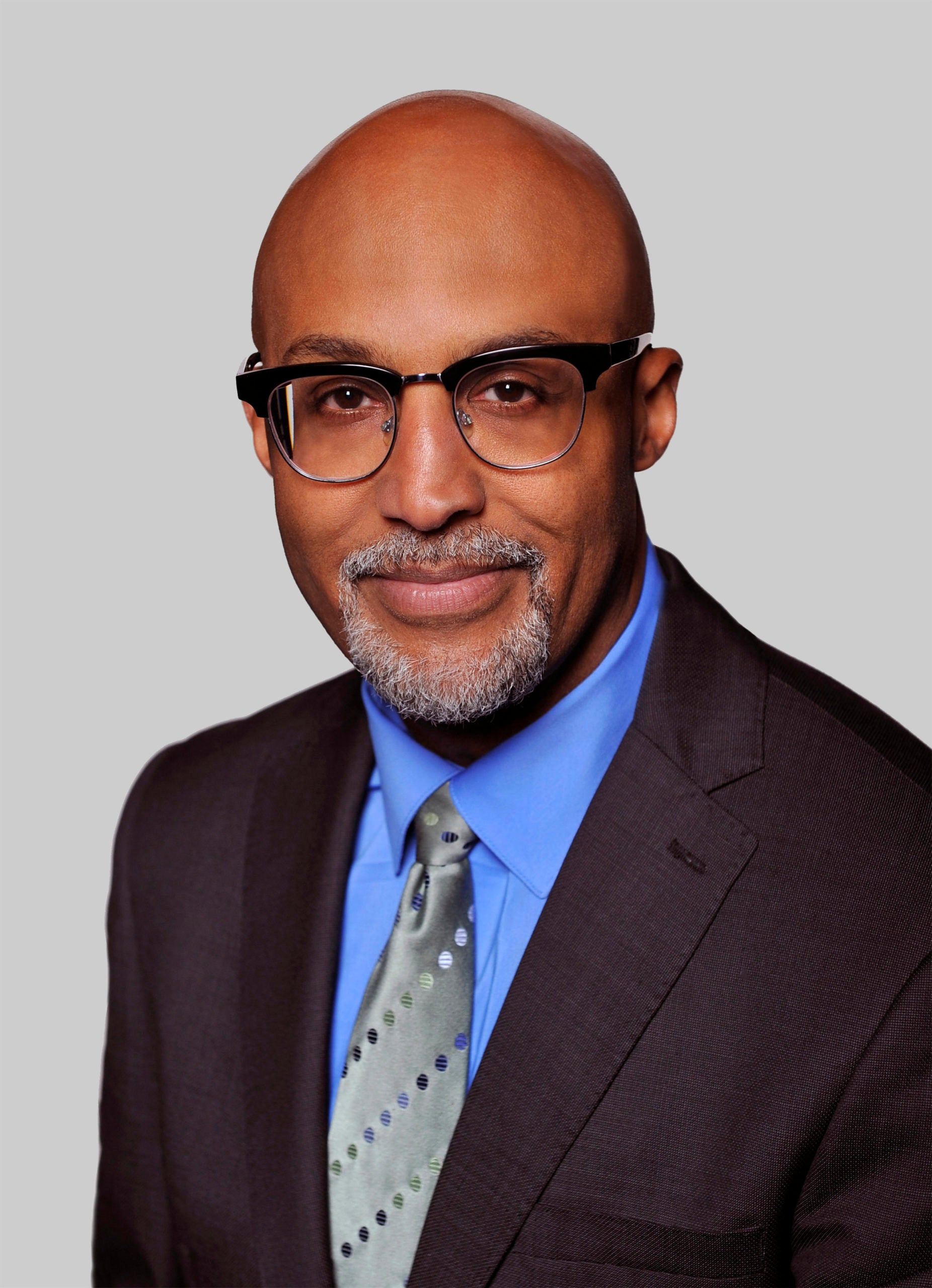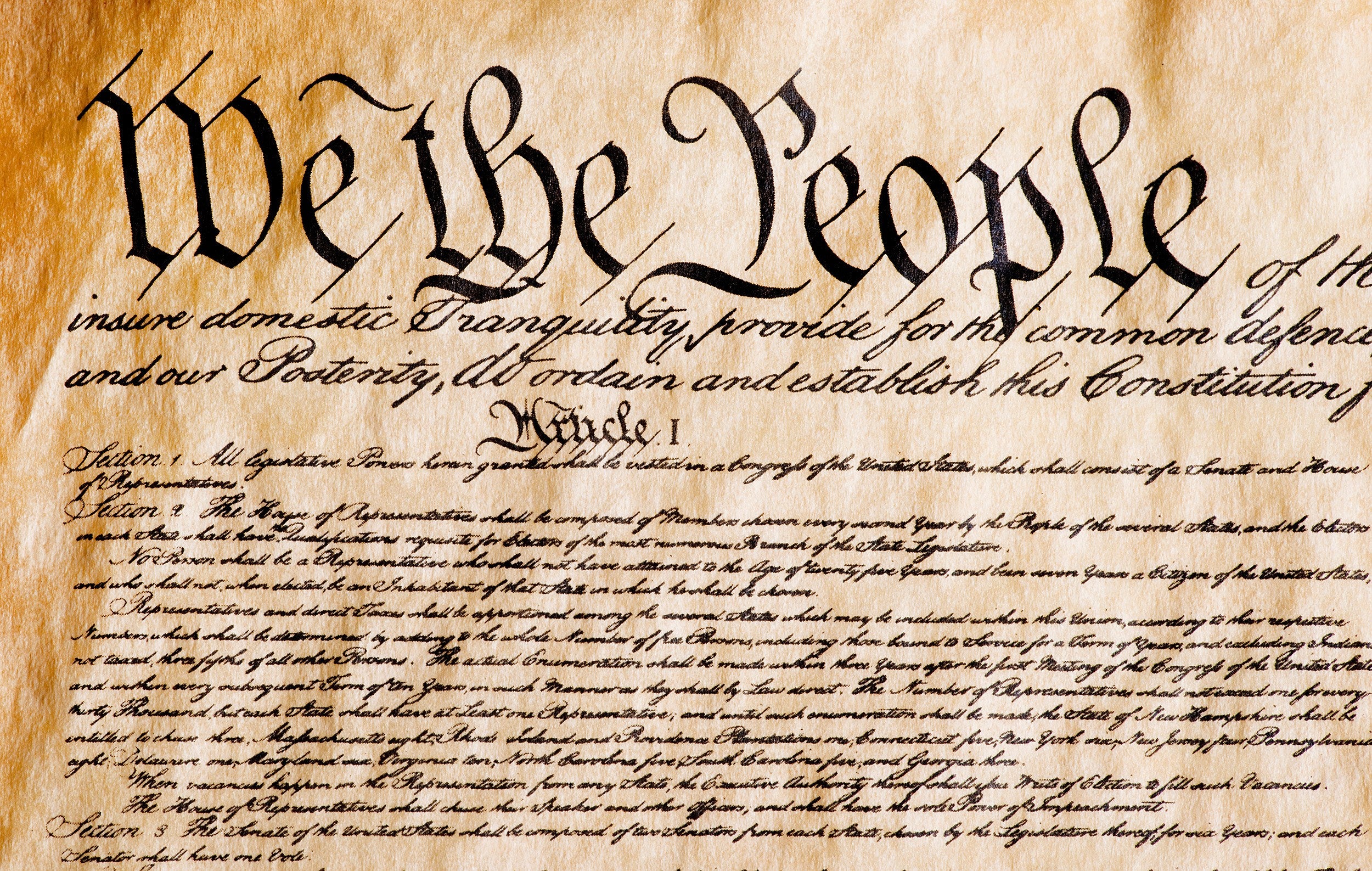On September 17, 1787, delegates at the Philadelphia Convention signed what became the U.S. Constitution, replacing the previous organizing document, the Articles of Confederation, which many had come to see as too weak and inadequate for the nascent nation. At once offering Americans the promise of freedom, and excluding Black and indigenous people, women, and other marginalized groups, the new Constitution has nonetheless endured — and evolved — over the last 234 years.
In fact, despite the charter’s inherent contradictions, says Harvard Law School Professor of Practice Alan Jenkins ’89, it “beautifully articulated the notion that government’s power flows from the people” — people including African Americans and many others who have continued to fight to realize its guarantee of liberty and equal justice for all.
This Constitution Day, Jenkins spoke with Harvard Law Today about his thoughts on the document’s genius and cruelty, the Supreme Court’s important role, and how we can best harness the Constitution’s power to “afford full equality and opportunity for everyone.”
Harvard Law Today: What did the Constitution say about race when it was first adopted, and how has that conception changed over time?
Alan Jenkins: Our original Constitution was both brilliant and highly flawed. It brilliantly articulated the idea of fundamental equality — human equality. It beautifully articulated the notion that government’s power flows from the people, and that government serves the people. But it was fundamentally flawed in preserving and propping up slavery, that ultimate form of inequality. And for excluding women, non-white people, indigenous people, non-property owners, from the definition of “the people.” From a racial justice standpoint, it was highly flawed, moreover, because it explicitly provided for the return of people who had escaped from slavery.
The Constitution has been amended, and in my view, improved over time through those amendments, but we are still living with some of those fundamental contradictions of our original Constitution.
HLT: In a prior interview, you mentioned that, in contrast to ours, South Africa’s constitution explicitly allows for laws aimed at advancing equity for historically disadvantaged groups. In your opinion, assuming that that amendment of the U.S. Constitution was politically possible, is that provision something you think we could benefit from? What other changes do you think would be beneficial?
Jenkins: The South African constitution is a remarkable document, in part because it draws from the wisdom of the world’s experiences as well as its own national experience with extreme racial discrimination and ways of overcoming it. It explicitly provides that race can be considered for the narrow purpose of addressing racial discrimination and its aftermath of inequity. It provides for an explicit right to housing, a right to education, a right to basic economic survival — things that our Constitution does not explicitly provide for.

In the U.S., during the Warren Court period, we saw the Supreme Court moving towards recognizing that an absolute deprivation of resources in a nation of plenty might, when it comes at the hands of the government, actually violate our own Constitution.
I do think that our Constitution would benefit from a more explicit articulation of fundamental economic rights. But I also think that there are other ways of accomplishing that. President Roosevelt, in his Four Freedoms speech, talked about “freedom from want” as a fundamental freedom. The international human rights system, which the United States helped to craft at the end of World War II and after the horrors of the Holocaust and depravation of the Great Depression, also provides explicitly for basic economic rights. We actually have the fundamental principles in place to recognize some of those economic, social, and cultural rights that the South African constitution recognizes explicitly. It’s just a question of political will and of implementation.
HLT: Do you think it should be easier to amend the U.S. Constitution, or do you think that would create a slippery slope problem?
Jenkins: I agree with the framers’ decision to make it difficult to change our Constitution. Our Constitution should not be changed based on political whim. It should be changed only when there is a broad societal agreement that an improvement or a change is needed. However, I also think that in moments like today, where society is seeing a mismatch between how the Constitution is interpreted and the real challenges we are facing as a nation, that this may be a time when a constitutional amendment is warranted.
HLT: You have also previously made the point that, in the recent past, the Supreme Court has very narrowly interpreted existing provisions in the Constitution to overturn laws like the Voting Rights Act. Can you say more about the ways in which you believe SCOTUS’s interpretation of the Constitution has had an impact?
Jenkins: Our Constitution, as it exists now, provides us with the tools and resources and principles to afford full equality and opportunity for everyone in our country. Yet there has been a trend for at least 40 years of presidents appointing justices specifically because of their restrictive interpretation of the Constitution and their likelihood of resisting full and equal justice and opportunity through our laws.
In my opinion, that is a much bigger barrier than the Constitution itself. I think our Constitution gives us most of what we need to enjoy equal justice and opportunity and the full range of human rights. But we see not only Supreme Court justices, but many courts around the country, that are either hesitant or actively opposed to making it so.
HLT: Given those barriers, do you think that reforms are needed to the process of appointing justices to the Supreme Court, as a presidential commission is currently studying?
Jenkins: I think the best solution is to build the political will to appoint and confirm justices who are committed to the full application of our Constitution to uphold human rights and equality. That is really what we should all be striving for.
I think we have seen specific efforts in the last couple of years to manipulate the system, and to put in place justices who are hostile to fundamental human rights, and who, at least based on historical practice, would not even have been considered previously for nomination. I think that is its own problem, and I think there are some good arguments for an immediate, one-time fix for that sort of manipulation of the system. But more broadly, I personally think the historical system that the framers chose for nominations and filling Supreme Court vacancies is probably a good one.
It’s worth noting that the size of U.S. Supreme Court has been changed multiple times. Two of those changes came right after the Civil War to ensure that the new constitutional amendments, the 13th, 14th, and 15th amendments abolishing slavery, ensuring due process and equal protection of the laws, and ensuring voting rights for Black men, would actually be applied and implemented by the federal courts and the Supreme Court. Again, that was a unique moment, because it was the end of the Civil War. It was a moment in which President Lincoln had been assassinated. And there was a new president, Andrew Johnson, who was hostile to those constitutional amendments. Congress saw fit to change the size and composition of the U.S. Supreme Court through legislation; note that they didn’t have to amend the Constitution, to make sure that those fundamental rights were respected. We may be in that kind of unique moment now.
HLT: There is a lot of ongoing debate in America today about Critical Race Theory, and sometimes it feels like people are arguing about different things. What is Critical Race Theory, and how is it applied in American law, if at all?
Jenkins: One of the godfathers of Critical Race Theory was Professor Derrick Bell, who was one of my professors at Harvard Law School when I was a student here. It really is about the idea that we can’t fully understand our Constitution and laws unless we understand their full history and development. And that we can’t understand that full history and development unless we study and understand the role that race and racial discrimination have played. Otherwise, it’s like going to see a movie and coming in at the middle of it, and expecting to understand everything that comes next. You just can’t do it, because you don’t have the context. Critical Race Theory is the idea that students of the law in particular should understand that full history, including aspects that sometimes make us uncomfortable, that sometimes haven’t been discussed in mainstream academia or textbooks, because they included uncomfortable truths.
The idea of Critical Race Theory has become a political shorthand for any kind of uncomfortable racial discussion. And most of the people who are speaking out against so called Critical Race Theory actually have no idea what it is. It has never been something that has been taught in elementary schools; it’s a relatively arcane set of legal theories that would be quite surprising to find in K-12 educational curricula. The argument is really over the fundamental principle: should we understand our entire history, including those things that may make us uncomfortable, that may cast historical figures in a more nuanced or controversial light? Or should we ignore, and in some cases, censor, that past, hide it from students?
HLT: You’re teaching a course this semester called Communication, Law and Social Justice. What is it about?
Jenkins: Before joining the Harvard Law School faculty, my most recent job was as co-founder and president of The Opportunity Agenda, an organization that uses strategic communications and cultural strategies to move hearts, minds, and policy towards greater and more equal opportunity.
My idea for this course is that you can win a lawsuit, but if you haven’t built public support for the outcomes, that legal result is going to be ignored, overturned, or forgotten. You can’t sustain victories for social justice unless you have built the public support that is needed. The primary tool for doing that is better communications and persuasive strategies. As lawyers, we are terrible at that. We learn in law school to speak a very rarefied language that only people with law degrees can understand – and that has its place. But it is exactly the wrong language for trying to explain and persuade general audiences that the policies that we seek are the right ones for our community, our nation, and our world. My course is about looking at and helping students to understand a variety of strategies, both historical and contemporary, for achieving and protecting legal outcomes through communications and cultural strategies.
